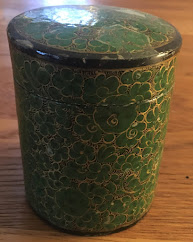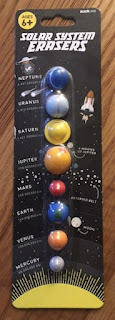It was the promise of meeting up with school friends, one who's flown (flown!) over from the USA, that fixed the London weekend date in my diary, two days after the launch of my latest pamphlet of poems. The train journey to London from Shrewsbury should be a simple matter compared with the 'freewheeling across' Europe remembered in GREAT MASTER / small boy. Wellington, Birmingham New Street, Coventry, Milton Keynes. 'Lützel, Bingen, Mainz,
Würzburg'. But this is 2021, not 2018.
Window seat, masks, hand spray, packed lunch, bicycle - my new risk assessment. Taking my bike I reasoned, would enable me to ride to my destinations protected from threats encountered on the London Underground and its ultra-confined spaces. On my way to Shrewsbury station, I realised I'd forgotten another risk: I was wearing the wrong trousers. Wide and cream-coloured, bought as an attempt to fit in with London chic, they flapped against my bike's well-oiled chain. I stopped to roll them over my knees, made it to platform 4 three minutes before departure.
'On the last morning, you'll rucksack-up, / then lower your pack to the floor, / consider the weight of things.' My sons are moving on, and I'm travelling alone with the weight of a Brompton, folded. Companionship comes in many forms, and I have projected personality onto my bicycle - she is blue, she is named Boudicca.
Blame the blockage in the Suez Canal, or the pandemic rush to get bicycles out of sheds, but the cycle shop nearest to London Euston is all out of bicycle clips and reflective ankle bands, and has been for months. Whilst telling me this, the kind assistant passed me a clutch of rubber bands in assorted sizes. "Try these," he said, with the confidence of someone who can speak several languages. Boudicca, were she able to do so, would have commented that I looked like a low-budget Tintin as I climbed onto the saddle, and set off for Tufnell Park.
'This is the birthplace of four symphonies, the violin concerto, / a clutch of quartets ...' 2018 - Pasqualatihaus, Vienna. 2021 - the Tufnell Park Tavern, Tufnell Park.
'This city's a miniature of empire' - as true of London as it is of Vienna. The cycle route took us down the back streets, under railway bridges, past car repair shops, close to tower blocks. It took us over tarmac, and took us over glass. Nearing the pub, I felt Boudicca's back wheel resist the road in the way it does as a tyre deflates: instant lethargy, forewarning of the need to lie on one's back with one's wheels in the air.
'beached on the rounded island of myself '
A piece of luck - we were yards from the reunion pub, and I had arrived early, with time to fold up and consider my options.
My option was to be where I was, and enjoy my reason for being there: companionship which has stretched over forty, fifty years. Those school friendships are like music, 'stretched and plied like toffee like smoke like guitar strings'. They are part of the background which I wanted to foreground, revel in, for those brief hours in the pub, before they receded again.
'The next part I've rehearsed in my head.' I would take Boudicca, folded, on the tube from Tufnell Park to Stockwell, a straight, Northern Line route, and find my longest-serving friend. She will be sitting with G., at the end of her garden path. This herringbone-brick path has become a summer avenue of love-in-a-mist. She will be pouring champagne, and we will talk about how, the next day, we will face together with her bike (Cleopatra - good in a crisis) the challenge of changing the rear tyre on a Brompton for the first time. We admit what we know: that it will be harder than fixing the front tyre, involving, as it does, negotiating gears and the chain. She will lend me scrubs and gloves for the procedure (direct me gently, saying, "Lefty Loosey, Righty Tighty" and other wisdoms learnt, though not at medical school). 'You understood the maths of it'.
We will lunch on home-made faux gras pate and brioche with her mother Morar, my adopted mother, and no one will mind that my hair is unbrushed, and that I'm not wearing my wide London trousers, will be oily around the edges.
Vienna, 2018. London, 2021. I feel repaired by these journeys, and their memories, by the companionship of my family, my friends, my bicycle - all of this giving life rhythm, tone, timbre, beat. 'Whump Whump Whump Whump' goes the swan lifting from the River Severn, goes the flat back tyre, goes the pump inflating the new inner tube readying for the next ride.
Coda
This is the peculiar alchemy:
to be caught up in someone else’s song,
be drawn over strings, or hammered out,
plucked as a guitar, or blown across a flute.
It’s a hollowed space, a refuge, place of hope
which shows us all our losses. It’s where I go
when I exhaust the words for love and sorrow.
It’s music.
GREAT MASTER / small boy is published by Fair Acre Press. If you wish to buy a copy, please email liz.lefroy@btinternet.com for details
























